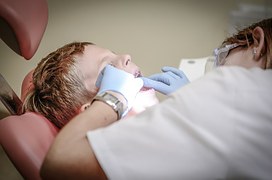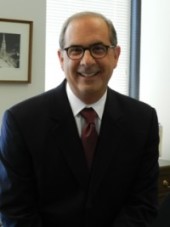Recently the Georgia Legislature considered House Bill 684, which purportedly would have allowed greater access to dental care for Georgians in safety-net settings by allowing dental hygienists to perform cleanings without requiring that a dentist be present or an exam be given.
Initially, the Georgia Dental Association opposed the bill. Subsequently, we worked on amendments with the sponsor. After numerous negotiations the Georgia Dental Association agreed to accept the amendments, and the bill passed out of the House Health and Human Services Committee.
So why did the Georgia Dental Association, after making suggestions for numerous amendments, change its position and stop supporting HB 684?
At the end of the day, our member dentists could not compromise their first order of ethical care, to do no harm – because harm would inevitably have resulted from patients believing that a cleaning was the same as an exam.
In fact, the passage of HB 684 would have benefited many dental practices financially, by letting them deploy unsupervised hygienists to provide cleanings to Medicaid patients. But to their credit, dentists selflessly chose the safety of the most vulnerable citizens of Georgia over their own gain.

The poor, underserved, and medically compromised citizens of Georgia should not receive a lesser standard of care, and that is why the Georgia Dental Association reasserted its collective conscience. Further, the Georgia Dental Association humbly thanks the supermajority of legislators who also understood that a reduced standard of care would not be in the best interests of their constituents.
While we regret that this decision unsettled the leadership in other advocacy groups, as my grandfather always said, it is never too late [to change your mind] to do the right thing!
HB 684 was initially promoted as a “safety-net setting” bill that would provide greater access to dental care. It’s a flawed premise from the bill’s inception for two reasons.
No. 1, “access” is not the issue. Rather, the issue is “barriers.” No. 2, the bill contained a provision that went well beyond safety-net settings by reducing the level of supervised care in the private practice office of a dentist. This second point is never mentioned by the proponents because casting the bill as a safety net solution has more emotional appeal.
Facts:
Is a Cleaning Equal to a Dental Exam? Well-intentioned proponents of the bill stated that a “cleaning is better than nothing” – a medically unsound premise. Such a statement could distort the public’s perception of good oral health, because the bill failed to address conditions that only a dentist can diagnose and treat, such as dental pain, infection or cavities.
Proper Equipment in Safety-Net Settings: Although the bill was amended to require suction equipment for cleanings in nursing homes – a critical safety issue for patients who cannot swallow – there is no corresponding requirement for nursing homes to provide the equipment.
Public Health: A report from the Georgia Health Policy Center at Georgia State University (A Study of Georgia’s Dental Workforce 2012) found that 43 percent of public health clinics reported that they have excess capacity because patients failed to show up for treatment.
Known Barriers Were Not Addressed: The bill provided no solutions to other barriers to oral care, such as transportation, language barriers, cost, fear, time off from work, or securing parental permission in school settings that keep Georgians from accessing proper oral healthcare.

Dental Offices Are Nearby: Residents in the 16 counties without a dentist are within a 30‐minute drive of the closest dentist in a neighboring county, according to the Georgia Health Policy Center report.
Public Health: The proponents of HB 684 attempted to compare the practices in Public Health settings to safety-net settings. HB 684 as written is light-years apart from Public Health protocols now in place. Like 45 other states, Georgia allows licensed dental hygienists to perform certain duties in specific settings without a dentist physically present. However, the existing protocols provide the highest-quality care for the patient. In the correctional system, a dentist must examine the patient before a cleaning can take place. The patient-protective protocols submitted by the Gwinnett/Rockdale/Newton Public Health Clinic state that a dentist must be onsite for the cleaning if the patient has specific health conditions (e.g., diabetes, heart issues) and a patient with signs of oral disease, such as cavities, must be referred to a dentist.
One of the most important amendments we proposed would have required that the dentist conduct an initial examination of the patient before authorizing the hygienist to perform the unsupervised cleaning. Our members felt this was a reasonable requirement that would balance our concerns for patient safety while still adhering to the intent of the bill. This amendment was expressly rejected by the bill’s proponents.
Sustainable solutions
Through the Georgia Dental Association Action for Dental Health Plan, the Association is establishing public‐private partnerships to advance real solutions including, but not limited to:
** Forming emergency room diversion partnerships between local dentists, hospitals and community leaders to reduce health care costs and improve patient care by treating dental disease in the dental practice instead of the emergency room
** Bringing more dentists to rural communities via the Rural Student Loan Forgiveness Program
** Offering to fund a program that will help pay a portion of the salary for a dentist to fill the state’s vacant dental public health director position to prioritize improving oral health and education in Georgia
** Working on a partnership with The Dental College of Georgia at Augusta University and the Georgia Department of Public Health to provide a volunteer network of adjunct dentists to oversee dental student internships in public health settings, thereby providing free dental resources to the state
** Funding a Dental Services social work coordinator to match at-risk patients with dentists who are volunteering their services to help those in need
** Working with state officials to enhance the existing Medicaid program to include preventive and restorative dental treatments for adults
** Establishing partnerships with dental clinics that serve children and adults in need
** Developing and implementing an oral health caregiver education program in nursing homes.
The Georgia Dental Association encourages the Georgia Dental Hygienists’ Association, the Georgia Council on Aging and other stakeholders to join us in the above efforts via meetings between the 2016 and 2017 legislative session to formulate and advance real sustainable solutions to address barriers to oral health care in our state.
Frank J. Capaldo is executive director of the Georgia Dental Association.

